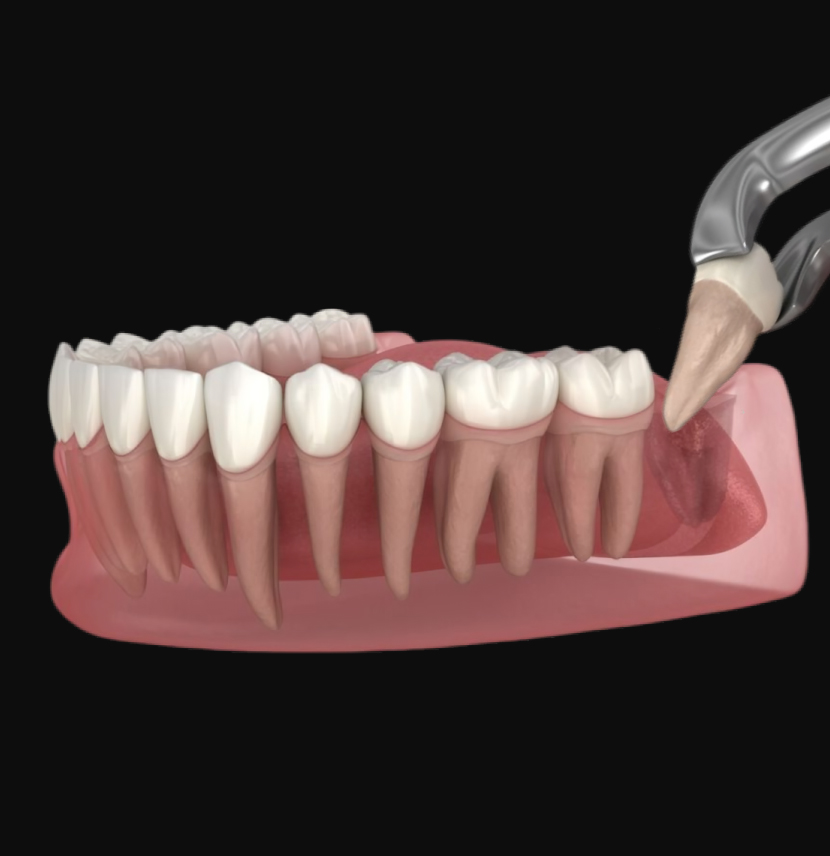
Extractions In Moundridge, KS
Despite your best efforts, there may be instances where it becomes necessary to extract teeth for the sake of your health. If all other options have been exhausted and you have decided on extraction, we will do everything possible to support you. Your well-being is always our top priority when it comes to treatment decisions. If you prefer sedation during oral surgery, we can discuss these options in your treatment plan. We take every precaution to ensure that even minor surgical procedures are as comfortable as possible.
Although some teeth may be easier to remove than others, the team at Newton Dental Studio takes pride in ensuring that every patient is properly numbed with modern anesthesia. Once the anesthesia has taken effect, Dr. Zhang will use specialized instruments to gently extract the tooth. You will receive specific post-operative instructions to help you care for the area after the procedure.
We understand that our main focus is currently on managing your immediate care, but we also want to address your long-term plans for replacing any missing teeth. While leaving a space is an option, it's important to consider the challenges that can arise in terms of appearance and function. When there is an open space, teeth tend to slowly shift or move, which can lead to an unbalanced bite. By addressing this issue now, we can prevent potential problems later in life.
Although our main objective is to ensure the health and functionality of your teeth, there are instances where extraction may be necessary to preserve the overall health of your mouth. Since teeth play a vital role in nourishing our bodies and boosting our confidence, we will work with you to develop a plan that aligns with your short and long-term goals.
Tooth extraction may be recommended commonly.
- A severely decayed or damaged deciduous tooth, commonly known as a "baby" tooth, may resist natural shedding, potentially impacting your child's smile development if the roots do not shrink or the tooth fuses to the bone. We closely monitor this situation and recommend timely removal of the baby tooth to ensure proper emergence of the permanent tooth.
- If left untreated, a severely decayed tooth can cause irreversible harm, damage healthy structures, and lead to dental infections. In cases of extensive damage where restoration is not possible, dental extraction may be necessary.
- If a tooth has severe fractures, its repair may not be feasible depending on the extent of the damage. Extraction might be required if too much structure or the root is compromised.
- Wisdom teeth, the last permanent molars, can cause problems such as misalignment, impaction, or decay. It is often recommended to address these issues in young adults to prevent complications.
- Crowded teeth occur when permanent teeth exceed the available space in the jaw. As part of orthodontic treatment, specific teeth may need to be removed to achieve a well-aligned, attractive, and healthy bite.
What is the procedure for performing a tooth extraction?
At our office, we are committed to providing exceptional dental extraction care, regardless of the underlying reasons. Our dentist will carefully evaluate your medical and dental histories and discuss any specific considerations for your treatment.
It is important that you inform us about any existing medical conditions or medications you are currently taking. In some cases, additional precautions such as antibiotics or a change in medication may be necessary. We may also require a medical clearance. Please follow all pre-surgical instructions and let us know if you are feeling unwell or experiencing any symptoms on the day of your surgery.
Our primary objective is to minimize anxiety and ensure your comfort throughout the tooth extraction process. Before the procedure, we will address any medical concerns or precautions and provide you with detailed pre-surgical instructions. We will also discuss post-surgical recommendations, including the possibility of replacing the extracted tooth or teeth and the best options for your ongoing care.
To accurately assess the tooth and determine the most suitable extraction method, we will conduct a thorough examination and use digital radiographs as needed. Extractions are typically categorized as either "simple" or "surgical extractions."